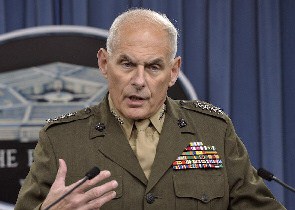Caribbean Meeting On Implementation Of UN Firearms Protocol
BRIDGETOWN, Barbados – Gun related crimes connected to the trafficking of illegal drugs and firearms are on the increase.
This was revealed by Permanent Secretary in the Office of the Attorney General, Antoinette Williams,of Barbados during the recent launch of a regional workshop on the implementation of the United Nations Protocol against the illicit manufacturing of and trafficking in firearms, their parts, components, ammunition and other related instruments, at the Amaryllis Hotel on Barbados’ south coast.
Mrs. Williams told participants at the three-day workshop that “within the last 15 to 20 years there has been a proliferation of gun related crimes, many of which have been connected to the trafficking in illegal drugs and firearms. Many of the human and limited economic resources of countries in our region have had to be diverted from areas of production into fighting crime”.
As a consequence, she said, “Whenever a crime is committed, the social and economic outcomes are enormous,” and this contributes to CARICOM states’ eagerness to implement a protocol against similar gun-related crimes.
“The purpose of the Protocol on Firearms is to promote, facilitate and strengthen cooperation among states in order to prevent, combat and eradicate the illicit manufacturing of and trafficking in firearms … and other related instruments,” added the Permanent Secretary.
“The workshop has attracted not only representatives from across the region, but also experts from regional and international organizations and many non-governmental organizations (NGO’s), all of whom have an interest in partnering with us to tackle head-on this whole question of trafficking in firearms and the problems associated with this activity.”

Permanent Secretary in the Barbados Office of the Attorney General, Antoinette Williams, addressing participants at the workshop.
In addition, Mrs. Williams affirmed that it is understandable for participants of the workshop to be drawn from police forces and law enforcement agencies across the region, because they are the ones in the field “facing the music, as it were, on a daily basis”.
However, she contended, “the devastating effects of transnational organized crime … should galvanize our Governments into widening the participation in these discussions, to embrace those persons whose lives are affected by this scourge and those agencies charged with the responsibility for dealing with the consequences of crime”.
The Firearms Protocol discussed at the Bridgetown meeting is a segment of the Convention Against Transnational Organized Crime, which also includes protocols to prevent, suppress and punish trafficking in persons, especially women and children, as well as migrants caught smuggling by land, air and sea.
The seminar raised the level of the game from issues related to national implementation of the relevant provisions, to regional exchange of views and experience gained in the discharge of priority areas including record-keeping, marking of firearms and general requirements for export, import and transit licensing or authorization systems, of the Firearms Protocol.
This is the first global legally-binding instrument on firearms. It offers states a broad cooperation framework that sets out comprehensive control measures, with a view to regulating legal transfers and reducing the risks of diversion of firearms into the illegal market. Besides those already mentioned, its provisions encompass confiscation, deactivation, tracing and brokering.
Article 5 of the protocol requires the criminalization of three groups of offenses:
(a) The illicit manufacturing of firearms, such as the manufacturing of firearms without marking, the assembly or manufacturing of illicit parts and components or manufacturing or assembly without legal permit or authorizations;
(b) illicit trafficking in firearms, such as the transnational transfer of firearms without authorization or unmarked; and
(c) other offenses aimed at obstructing the identification or tracing of a firearm.
Parties are also required to criminalize the attempt to commit the above-mentioned offenses, the participation as an accomplice in such offenses and organizing, directing, abiding, abetting, facilitating or counseling the commission of those offenses.
The workshop was attended by representatives of law enforcement agencies from several CARICOM countries, Canada, the United States and regional NGO’s.




